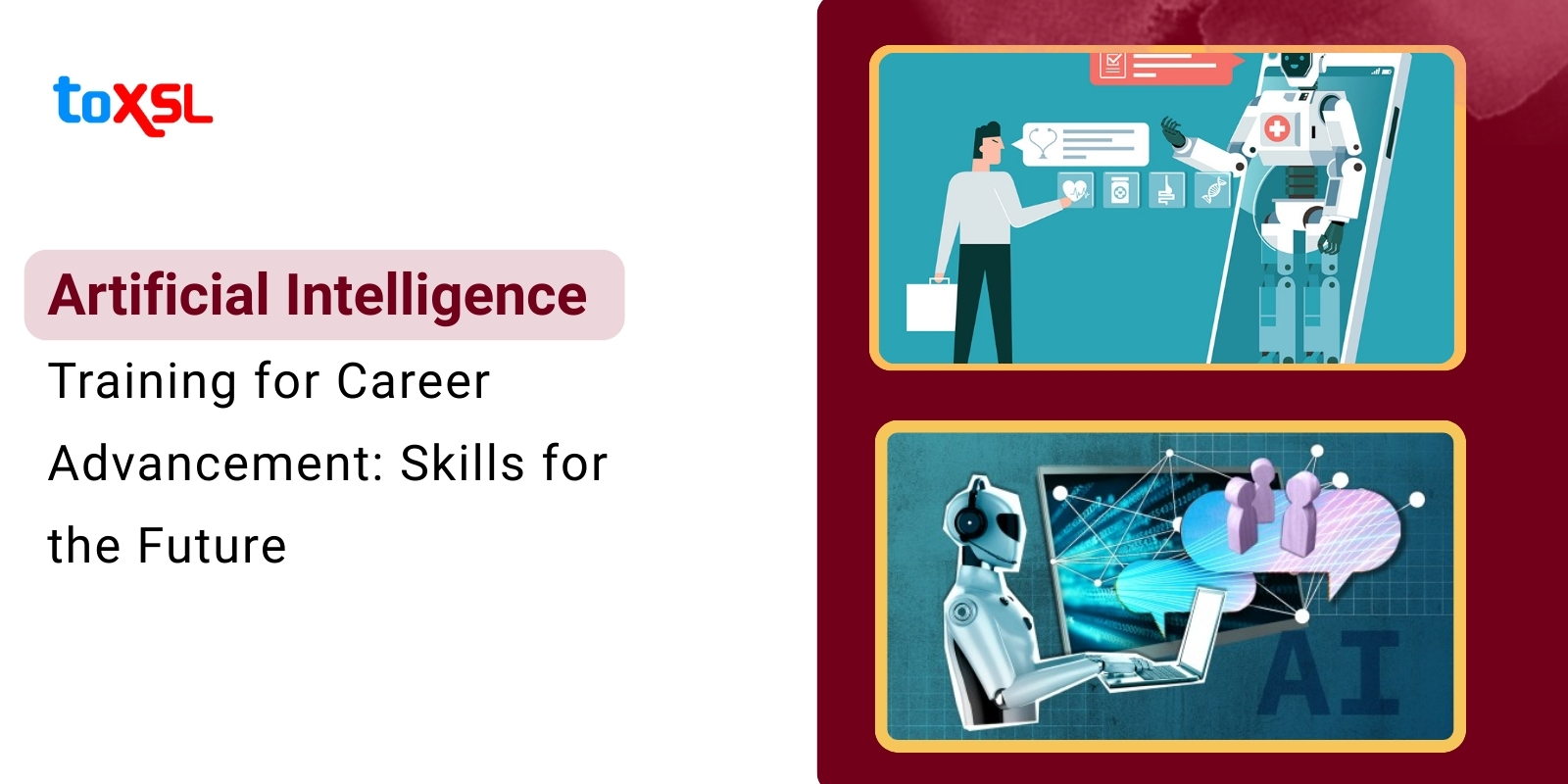- Sep 26, 2025
- Trainings
- 791
Share this post on:

Are you looking for the best Artificial Intelligence industrial training in Mohali, Chandigarh? AI training programs in Mohali help students with the technical knowledge and practical experience needed to harness the power of machine learning, natural language processing, computer vision, and data analytics. It empowers students to apply AI knowledge in real-world scenarios, ranging from healthcare diagnostics to financial forecasting and autonomous vehicles.
Key Takeaways
• AI skills such as programming (Python), machine learning, deep learning, NLP, and computer vision are critical for future careers.
• Cloud computing knowledge and AI ethics are important in professional AI work.
• The combination of technical expertise and soft skills enhances career growth.
• Practical learning via projects, certifications, and hands-on labs is important to master AI concepts.
• AI offers diverse high-paying roles from engineering to research, product management, and data science.
• Continuous learning is important due to AI’s rapid evolution and ethical challenges.
• AI training future-proofs careers in an increasingly automated and smart world.
Core AI Skills for the Future
To capitalize on the AI revolution, gaining proficiency in certain technical and soft skills will be indispensable. The following are key AI competencies that career-minded individuals should focus on mastering:
1. Programming and Software Development
Proficiency in programming languages such as Python, R, C++, and Java forms the foundation for building AI applications. Python remains the most popular due to its rich ecosystems with libraries like TensorFlow, PyTorch, and scikit-learn. Knowing how to write efficient, clean code and collaborate using tools like Git is essential.
2. Machine Learning and Deep Learning
At the heart of AI, machine learning allows computers to learn from data without explicit programming. Deep learning, a subset, emphasizes neural networks that power applications like speech recognition and image analysis. Understanding algorithms, model evaluation, feature engineering, and frameworks is crucial.
3. Data Analysis and Visualization
Interpreting and visualizing data aids in extracting actionable business insights. Skills in data wrangling, statistical analysis, and visualization tools such as Tableau, Power BI, and libraries like Matplotlib or Seaborn are in high demand.
4. Natural Language Processing
NLP enables machines to understand, interpret, and generate human language. Familiarity with techniques like sentiment analysis, language translation, and text summarization, plus tools like NLTK and spaCy, opens doors in chatbot development, voice assistants, and content analytics.
5. Computer Vision
Computer vision skills enable AI systems to interpret visual inputs such as images and videos. Applications range from facial recognition to medical imaging diagnostics. Knowledge of OpenCV, image processing techniques, and convolutional neural networks (CNNs) is valuable.
6. Cloud Computing
Deploying and scaling AI models requires comfort with cloud platforms like Amazon Web Services (AWS), Microsoft Azure, and Google Cloud. Understanding containerization (Docker, Kubernetes), distributed computing, and MLOps practices facilitates reliable AI solution delivery.
7. AI Model Explainability
As AI decisions impact critical areas, understanding explainable AI (XAI) techniques, fairness, bias mitigation, and ethical guidelines is increasingly important for responsible AI development.
8. Communication and Problem-Solving
Strong communication skills enable AI professionals to translate complex technical insights into business value. Critical thinking and problem-solving abilities complement technical skills to design effective, user-centric AI systems.
Career Opportunities in Artificial Intelligence
Artificial intelligence has become one of the most dynamic and rapidly growing fields offering a vast array of exciting career opportunities. As industries across the globe accelerate their AI adoption, skilled professionals versed in AI technologies are sought after in diverse roles and sectors. Here’s an in-depth look at prominent career paths, roles, and the opportunities AI training opens up as we progress through 2025 and beyond.
• AI Engineer: AI engineers design, build, and deploy AI models and systems that enable machines to learn from data, make predictions, and automate decision-making. This role involves implementing machine learning algorithms, deep learning frameworks, and neural networks to solve real-world problems such as recommendation systems, fraud detection, and autonomous vehicles.
• Data Scientist: Data scientists utilize AI and statistical methods to analyze large, complex datasets and extract meaningful insights. They develop predictive models that help businesses optimize operations, enhance customer experiences, and identify new revenue streams.
• AI Research Scientist: AI research scientists engage in cutting-edge exploration of new AI models and algorithms. They work on pushing the boundaries of machine learning, deep learning, natural language processing, and computer vision through experimentation and theoretical study. A strong academic background, often a PhD in a relevant field, is typically required.
• AI Ethics Consultant: As AI solutions become widespread, ethical challenges regarding bias, privacy, and transparency have become paramount. AI ethics consultants work to ensure AI applications comply with ethical standards and regulations. They collaborate with policy makers, technologists, and business leaders to create responsible AI systems that respect fairness and user rights.
• Robotics Engineer: Robotics engineers combine AI algorithms with hardware engineering to create intelligent robotic systems capable of automation in manufacturing, healthcare, agriculture, and space exploration. The integration of AI enables these robots to perform complex tasks autonomously, from surgical assistance to warehouse logistics.
• NLP Engineer: NLP engineers specialize in enabling machines to understand and process human language. Applications include chatbots, virtual assistants, voice translators, and sentiment analysis tools. This field combines linguistics with AI technology, requiring expertise in text processing algorithms, language models, and libraries such as NLTK and spaCy.
• Computer Vision Engineer: Computer vision specialists develop AI systems that interpret and analyze visual data such as images and videos. Use cases range from facial and object recognition to autonomous vehicle navigation and medical image analysis.
• AI Product Manager: AI product managers act as a bridge between technical teams and business stakeholders. They oversee the development and deployment of AI-powered products, ensuring alignment with market needs, user experience, and ethical guidelines. Strong understanding of AI capabilities combined with project management and communication skills distinguishes this role.
• Big Data Engineer: Big data engineers design and maintain the infrastructure that allows AI systems to access and process massive datasets efficiently. They build data pipelines using tools like Hadoop, Spark, and Kafka, enabling scalable AI applications.
• AI Consultant: AI consultants advise companies on implementing AI strategies, choosing technologies, and accelerating digital transformation. They help identify AI use cases and tailor solutions to specific business challenges.
Why Choose Artificial Intelligence Course From ToXSL Technologies?
Choosing the right training program is important for anyone looking to build a successful career in artificial intelligence. ToXSL Technologies is a leading AI app development company in Mohali and Chandigarh that offer the best industrial AI training that helps students with practical skills and real-world experience.
• Experienced Trainers: At ToXSL Technologies, training is delivered by seasoned AI professionals with extensive industry experience, ensuring learners grasp both theoretical concepts and their practical applications.
• Industry-Relevant Curriculum: The AI courses encompass a thorough curriculum covering Python programming, machine learning, neural networks, natural language processing, deep learning, and AI deployment using popular tools like TensorFlow, Keras, and PyTorch.
• Hands-On Learning: Practical exposure is emphasized through live projects including image recognition, sentiment analysis, and predictive modeling, which help build a strong portfolio and confidence in solving actual business challenges.
• Flexible Training Options: To accommodate diverse schedules, ToXSL Technologies offers various flexible training durations and modes including online, weekend, and weekday batches.
• Placement Assistance: Beyond training, ToXSL Technologies supports career progression with resume building, interview preparation, and placement assistance connecting students to reputed companies.
• Modern Learning Resources: With access to the latest AI tools, labs, and learning resources, the environment is optimized for active collaboration, experimentation, and peer learning.
Conclusion
Artificial intelligence is redefining the future of technology and business across the globe. At ToXSL Technologies, we are committed to empowering learners with cutting-edge AI skills that open doors to impactful careers. Our comprehensive training programs blend theoretical foundations with practical, hands-on experiences and continuous career support to ensure every student is industry-ready.
By choosing ToXSL Technologies, students can be on the transformative journey that not only help them with the latest AI tools and technologies, but also help them with analytical mindset and ethical understanding important for responsible AI innovation.
Whether you are a beginner or a professional seeking to upskill, ToXSL Technologies provides the perfect platform to unlock your potential and achieve success in the rapidly evolving AI landscape. Want to learn more about our training programs? Contact us today.
Frequently Asked Questions
1. What topics are covered in ToXSL Technologies’ AI course?
Our AI industrial course covers fundamentals and advanced topics including Python programming, machine learning, deep learning, neural networks, natural language processing, AI algorithms, and model deployment using tools like TensorFlow and PyTorch.
2. Do I need prior programming experience to enroll?
While prior programming knowledge can be helpful, ToXSL Technologies offers beginner-friendly training that develops foundational coding and math skills alongside AI concepts.
3. How long does it takes to complete the AI training?
Duration varies with options including 45 days, 3 months, and 6 months programs to suit different learning paces and schedules.
4. Will I get hands-on project experience?
Yes, practical exposure is a key focus, with live projects simulating real industry challenges to ensure job readiness.
5. Does ToXSL Technologies provide job placement assistance?
Yes, our training programs comes with resume support and interview preparation.
6. Are AI courses offered online as well as offline?
Yes, flexible modes including online, weekend, and weekday classes are available to accommodate diverse learner needs.
7. What career paths can I pursue after completing the AI course?
Graduates can pursue roles such as AI Engineer, Data Scientist, Machine Learning Specialist, NLP Engineer, AI Researcher, and AI Product Manager across various industries.









